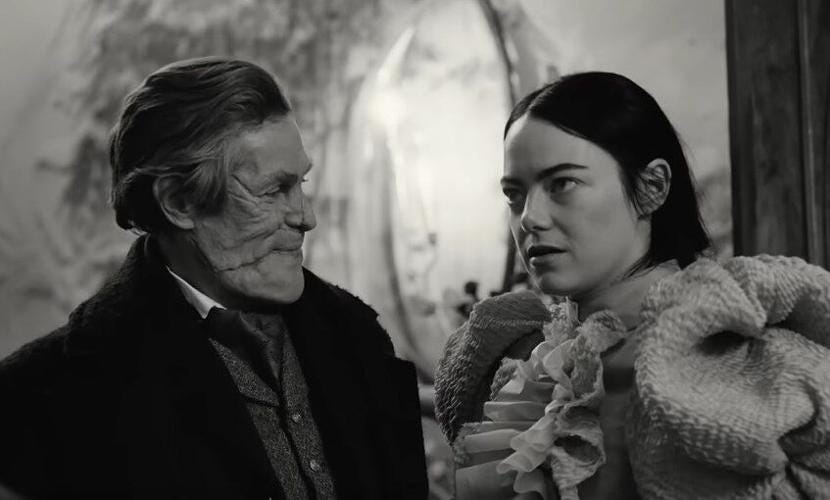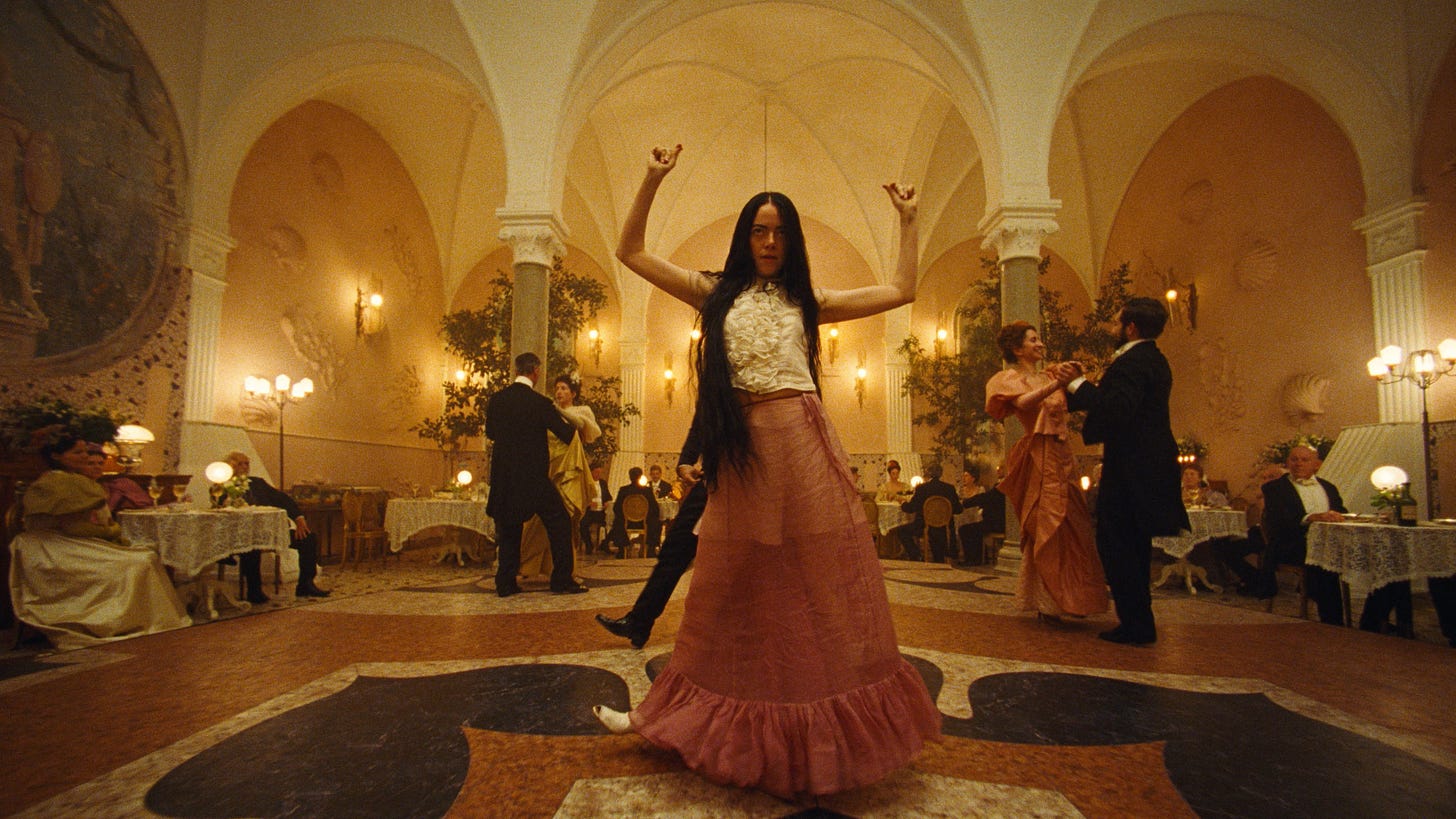Am I late to the party writing this hot take? Probably.
But I loved Poor Things.
I know a lot of people hated this movie, or were angered by this movie, or confused by this movie, and honestly? I get it. This is a fucking weird one. But I still think it’s genius. And I’m still gonna tell you why.
But first, let’s go back to #MeToo again (I know, I get sick of writing about it just like you maybe get sick of reading about it. But stick with me here!). Way back in 2016, writer, filmmaker, and internet personality Kelly Oxford tweeted, “Women: tweet me your first assaults.” And lo and behold, women did (myself included). The result was a fucking bleak thread of people disclosing horrendous sexualization imposed upon them far too young. It was captivating and impossible to look away while also completely nauseating. It was enough to completely lose faith in everything and everyone.
And while the film isn’t explicitly citing this particular moment in popular culture, that is subtext for the film. In a society where girls are sexualized far too young yet infantilized the moment they become an adult woman, how should they move through the world? That’s the core question that fuels Poor Things.
If you don’t know the film’s plot, just know that it involves a man (Willem Dafoe in some wild prosthetics) bringing an adult woman back to life after a traumatic event, replacing her brain with the brain of the fetus she was carrying at the time of her death. The result is an adult woman named Bella Baxter (played brilliantly by Emma Stone) with the brain of an infant. Throughout the film she is trying to do normal babyish things like figure out how to walk, develop language skills, and yeah, maybe explore what apples can and can’t do (if you know you know). In the background, various men, most with ill intentions, attempt to lay claim to Bella the infant-woman. But she manages to (mostly) outwit them as she educates herself about her place in the world through a variety of whacky yet harrowing exploits. The men sexualize her, degrade her, underestimate her, or infantilize her even when her child-like mind begins to catch up with her grown-up body. But Bella still manages to outsmart them most, if not all, of the time.
My husband and I saw the film in a crowded theater back in January. We were some of the only folks laughing at certain scenes in which grown men thought they’d pulled one over on our heroine, only to have her outwit them in the end. Because it was funny to us both, and it still is—like oh yeah, you want to sexualize girls and infantilize women? You think you can control them? Nice try.
And the reason this is both so dark and so funny is that it is clear from our political and cultural moment that men do think they can control women. Their ideal woman is someone with the brain of a small, easy-to-manipulate child and the body of a sexy Emma Stone. And it has been clear for decades now that to be a woman is, in many men’s eyes, to be a series of contradictions depending on what suits a man’s purposes best. And filmmaker Yorgos Lanthimos leaned into that real hard.
Lanthimos has a track record of making movies that are simultaneously absurd and hilarious and uncomfy and dark. Every film of his that I’ve seen has disturbed me, and Poor Things was no exception. But what I appreciated was how unrelenting this movie in particular was because that’s how the impossible duality of sexualization/infantilization feels. It’s fucked up and relentless and insanely frustrating. It’s absurd and depressing and tough to watch sometimes.
And if you hated the feeling Poor Things left you with? Well…good. That’s kind of the point.
So yes, I ride for Poor Things. Because it is maybe the best portrayal of a feeling I’ve known all too well for far too long but struggle to name. Objectification is a flattening of the self but also an ever-present surveillance. And Lanthimos makes sure we feel complicit as audience members because we are complicit.
In other words: did Poor Things make you anxious? I can’t believe I’m saying this but: good.






![Poor Things" Wonderful World of Weird and Furious Jumping [Review] Poor Things" Wonderful World of Weird and Furious Jumping [Review]](https://substackcdn.com/image/fetch/$s_!6sEb!,w_1456,c_limit,f_auto,q_auto:good,fl_progressive:steep/https%3A%2F%2Fsubstack-post-media.s3.amazonaws.com%2Fpublic%2Fimages%2F818e3c67-f925-4755-9a9b-2dbdb6de5353_788x460.png)
